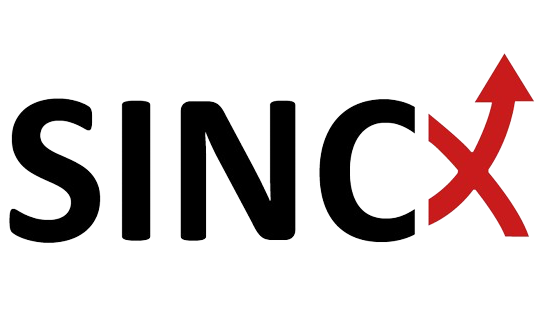The introduction of LMS product knowledge training for B2B sales staff is one of the biggest changes related to this matter. Learning Management Systems (LMS) enable enterprises to offer a more organized, scalable, and trackable sales training program.
Moreover, in the case of capital equipment companies, whether it is heavy machinery, industrial systems, or medical devices, an LMS can significantly improve the performance of B2B sales by providing skills and building the confidence of salespeople to close deals in less time.
We will discuss the impact of LMS-based product training on capital equipment sales and the reasons why companies must prioritize it.
Understanding the Challenges of Selling Capital Equipment
Capital equipment sales are fundamentally different from regular product sales. They include high risks, lengthy sales cycles, and multiple people involved in the decision-making process. Some of the major issues are:
- Complexity of Products: In addition to being capital equipment, the products are frequently equipped with advanced features and have technical specifications that require a thorough understanding.
- High Investment Decisions: Buyers, as a result which they require detailed demonstrations and ROI justifications before committing to the purchase.
- Multiple Decision-Makers: As a result of the range of different people from procurement heads to engineers, sales teams need to listen carefully and understand the questions that get thrown at them from various departments.
- Rapid Product Updates: The trend of frequent upgrades or innovations requires sales teams to always be updated.
If sales representatives do not have the product knowledge training, they might lose their credibility, they will miscommunicate features, and will not be able to handle customer objections.
Why LMS-Based Product Training Works Best
Using a learning management system (LMS) is more efficient for sales teams as it allows them to have a single digital platform to present, handle, and track their sales training. Besides that, it is also a system that guarantees non-stop learning with more convenient access to updated information. Therefore, the benefits of an LMS system for capital equipment sales are as follows:
- Scalability: The huge sales force, if distributed in several places, will be able to get the same product training materials at any time if they are delivered through an LMS.
- Flexibility: M-Learning platforms like mobile-friendly LMS allow the sales representatives to take their learning materials with them, which is very important for the field sales reps.
- Customization: The training can be split into different sectors according to the staff, i.e, the technical sales engineer, the relationships manager, or a new hire, etc.
- Tracking & Assessment: Managers can track learning progress, check knowledge retention through assessment, and locate skill gaps.
- Engagement: The use of games and other interactive content in learning makes it much more interesting compared to traditional methods.
Key Benefits of LMS Product Knowledge Training for B2B Sales Staff
B2B sales teams who receive product knowledge training through an LMS are empowered with more up-to-date skills, quicker onboarding, and expertise that remains consistent, which in turn leads to increased customer loyalty and sales that can be quantified.
1. Enhanced Product Knowledge
One of the essentials for B2B sales is in-depth knowledge of the product. Through an LMS, sales teams receive the latest and up-to-date product manuals, videos, demos, and FAQs at their fingertips. This not only eradicates wrong information but also helps salespeople to explain even the most complex technical terms with a confident tone of voice.
2. Faster Onboarding of Sales Staff
The newly hired workers are usually overwhelmed by the steep learning curve that is the culture of the capital equipment manufacturers. On the other hand, onboarding, with LMS product knowledge training for B2B sales staff, is more efficient and organized. Assessments, combined with self-paced modules, guarantee that new salespeople become productive in less time.
3. Improved Customer Interactions
The well-trained salespeople are the ones who can be trusted to motivate the customers by their confidence and expertise. They can develop such a skill set by participating in scenario-based sales training. In this case, they will be able to handle objections, demonstrate ROI, and address both technical and financial concerns, all of which will result in customer trust and loyalty, the latter being vital for deal closure.
4. Keeping Pace with Product Innovations
The manufacturers of capital equipment are always ready with a new feature, a new model, or an update, for that matter. An LMS facilitates immediate updates to the product training modules for the sales team so that they are not far behind with the latest product knowledge.
5. Consistency Across Teams
In situations where teams are geographically distributed, it becomes hard to manage. A learning management system maintains consistent learning criteria so that each sales employee, regardless of their location, will be able to deliver the brand the same level of knowledge.
6. Performance Tracking and ROI Measurement
The management team can monitor all aspects of training, such as the degree of completion, the results of the tests, and the link between the training outcomes and the sales figures. This approach that relies on data enables businesses the adjust sales training strategies to get the most out of their money.
How LMS-Based Training Boosts Capital Equipment Sales
A Learning Management System enables sales teams to build their skills, acquire the knowledge, and work together through the skills that are essential to the closing of complex capital equipment sales more efficiently.
Building Consultative Selling Skills
Buyers of capital equipment are not looking for features alone – they want solutions. LMS modules may embed consultative sales training, which teaches reps to seek out customer pain points, match product features with needs, and deliver solutions with ease.
Supporting Long Sales Cycles
Sales of capital equipment are typically long, and it takes several months to close the deal. The sales reps can benefit from LMS-based learning in that they can have refresher courses and get just-in-time product knowledge training for the stage of negotiations they are at, thus, they can remain sharp and well-prepared.
Enhancing Collaboration Between Teams
Not only does an LMS train sales teams, but it can also align marketing, technical support, and customer service teams. The departments that access the same knowledge base will have the same message to present; thus, they will be offering a stronger customer experience.
Increasing Competitive Advantage
The customers will be more willing to choose your product over those of your rivals when your salespeople are conversant with technical details and are able to provide clear value propositions. Excellent product training is directly correlated with higher success in competition bidding situations.
Best Practices for Implementing LMS Product Knowledge Training
In order to make your product knowledge training via LMS effective, engaging, and current, you will need to use these tried and tested methods.
- Blend Learning Formats: Intersperse video tutorials, real-world examples, simulations, and quizzes to engage sales training effectively.
- Microlearning Modules: Turn complicated product training into small, manageable pieces of learning for better memory.
- Role-Based Customization: Develop different routes for junior sales reps, senior managers, and technical specialists.
- Gamification & Rewards: Implement badges, leaderboards, and rewards to sustain learners’ interest.
- Regular Updates: Make sure the content of the training keeps up with the product changes and market requirements.
- Feedback Loops: Collect sales team input to adjust training and conquer practical difficulties.
Real-World Example: LMS in Action
Imagine a company that manufactures and sells high-tech medical imaging equipment. Their sales representatives, before the implementation of an LMS, used to depend on brochures and a few workshops. Therefore, these were the occasions where knowledge gaps could occur and inconsistent messaging could be delivered during client presentations.
The company, after implementing the LMS product knowledge training for B2B sales staff:
- Cut the onboarding time by 40%
- Raised average deal closure rates by 25%
- Achieved uniformity in product demonstrations across all their markets, local and international
- Got customer satisfaction scores to increase, thanks to the low sales interaction anxiety levels
LMS-based product training goes beyond just knowledge retention and becomes a direct lever for revenue growth.
The Future of Product Training in Capital Equipment Sales
AI-powered customization, VR demos, and data analytics are the reasons why LMS platforms are changing fast. Deep down, sales education can be turned into vividly interactive product demos, foreseeing the learner’s path, and utilizing AI assistants that provide help whenever required. Organizations that are heavily involved in product training will be the ones that gain maximum benefits from the futuristic scenario of sales training.
Conclusion
Selling capital equipment is a knowledge-intensive process that needs accuracy, expertise, and confidence. The traditional training methods on their own are not able to fulfill the changing needs of B2B sales. Through the implementation of LMS product knowledge training for B2B sales staff, organizations can provide their teams with continuous learning, quicker onboarding, and more impactful customer interactions.
In the end, LMS-based product training is the link that dissolves the distance between the complexity of a product and the customer’s understanding, thereby giving companies a competitive advantage in capital equipment sales. Your sales force, when thoroughly familiar with the product, doesn’t simply sell—they create trust, execute solutions, and foster business growth.
Related Posts

24 October, 2025





